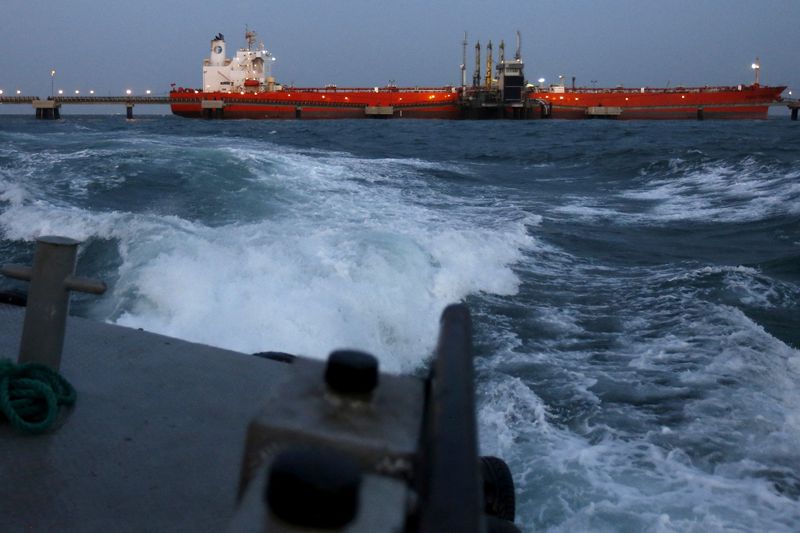By Marianna Parraga
HOUSTON (Reuters) - Venezuela's state oil firm PDVSA is toughening terms for buyers after a month-long halt to most exports of crude and fuel, demanding prepayment ahead of loadings in either cash, goods or services, company documents showed.
PDVSA's new Chief Executive Pedro Tellechea put the move in place this month. It reinforces measures implemented last year after several buyers skipped out on payments for oil, which provides most of the South American country's income.
After taking the helm, Tellechea launched an extensive audit of supply contracts, according to a written order to PDVSA seen by Reuters.
His order froze loadings, even pushed some vessels away that had begun receiving oil, until the review was complete and sale contracts could be modified or ratified, according to internal documents and three people familiar with the matter.
As of Jan. 27, a total of 28 vessels including 21 supertankers were waiting near PDVSA's ports to load some 45 million barrels of crude and fuel for exports. Another four ships had loaded but were waiting for authorizations to depart, according to vessel monitoring service TankerTrackers.com.
The new terms narrow a wide variety of contract modalities to a few requiring prepayment of cargoes entirely in cash or allowing payment via goods and services to Venezuela, but they must be received before Venezuela will release the oil, according to the documents.
PDVSA did not reply to a request for comment.
'SOLVE' ECONOMIC WOES
PDVSA explained in a contract viewed by Reuters that cash prepayment puts the company "in a favorable business position because it would secure income for the country that is essential to solve its economic situation."
The new models set deadlines of less than 30 days for completing bank transfers or settling outstanding debt balances.
In cases of swaps where the related oil sale exceeds the value of the goods or services, Venezuela must receive any outstanding balance in kind before the state will assign the next cargo, one of the documents showed.
Even long-term buyers must abide by the new rules that require payment in full by cash before each oil delivery.
So far this month, swap contracts with Cuba's Cubametales and Iran's state firm Naftiran Intertrade Co (NICO) were among the few in force.
A contract with Chevron Corp (NYSE:CVX) for repaying debt was unaffected. PDVSA has continued to load Chevron-chartered vessels and discharge imports from the U.S. firm.
A similar contract to repay debt to China with oil has continued, although the customer has faced more than 30 days of loading delays, according to shipping documents and Refinitiv Eikon data.
Since the suspension was imposed in early January, only one of PDVSA's list of new clients and intermediaries, Hangzhou Energy, has been authorized to resume loading following a 12-month contract extension agreed this week, according to the documents and one of the sources.
Other contracts are in the final review and should be authorized soon, another source said.
UNDER THE RADAR
Before U.S. sanctions, PDVSA used to receive letters of credit as guarantees if buyers were cleared to become established customers, and payments were completed in 90 days. Audit mechanisms were suspended about two years ago as the sanctions forced out traditional clients who were replaced by little known intermediaries with no track record of oil sales.
Some of those new intermediaries have faced court cases under accusations of corruption and embezzling.
Following an increase in the number of oil cargo departures without proper compensation to PDVSA, the company last year demanded to be prepaid at least partially in cash or goods. But the measure had not fully stopped the furtive cargoes.
Now, most of the proposed contracts imply a form of swap, so PDVSA pays with oil in return for the government receiving food, medicine or services, including home reconstruction and telecommunications equipment.

The suspension has caught even PDVSA employees off-guard.
"While contracts remain suspended, we have been told to register all exports in Excel sheets," instead of using PDVSA's contract administration system, a company employee said.